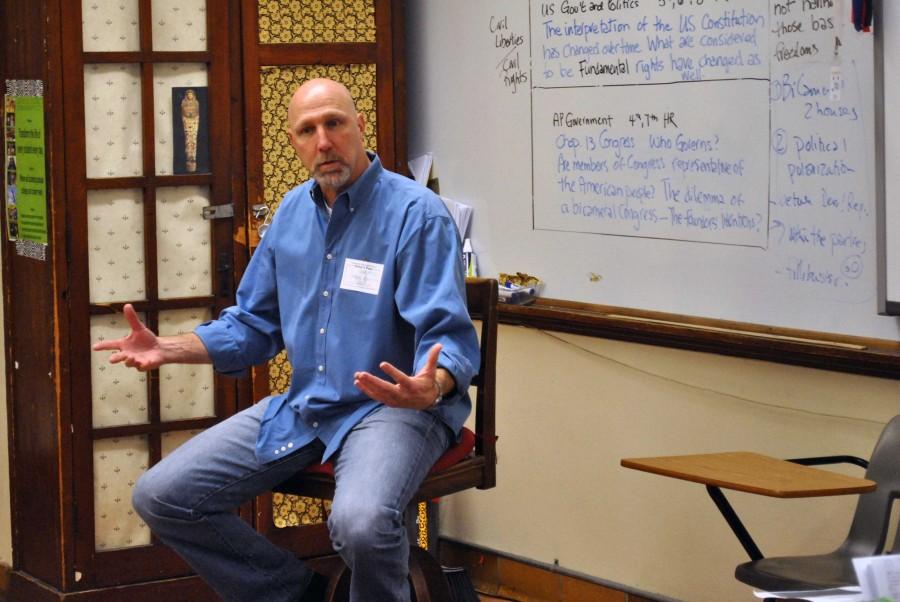During seminar on Jan. 29 students flocked to Ms. Pezzolla’s classroom to listen to David Klingler, who is a former Los Angeles cop and is currently a professor of criminology and criminal justice at University of Missouri-St. Louis, explain the perspective of police when viewing situations.
Klinger started his speech with addressing how emotions affect people’s actions.
“When people’s emotions get up so high that they just react,” said Klinger. “And when that happens they can do foolish things.”
Klinger then acknowledged the humanity of officers.
‘What we have to remember is that police officers are humans with the same emotional triggers as others,” he said.
Klinger also brought up the issues occurring in Ferguson this past year.
“If we think about human emotions and the social role of the police, going back to our current issue with Ferguson, reason has fled St. Louis,” he said. “People have problems talking to each other and aren’t acting rationally. Who is that person or who are those people in St. Louis to calm us down to have a rational conversation?”
He then addressed how people make assumptions and stick to the opinions these assumptions form.
“Often at times we have a preconceived notion and we only hear what goes along with our bias, which leads to prejudice,” said Klinger.
After that he illuminated a greater issue at hand when it comes to public knowledge of police violence.
“We don’t know how often people get shot by police officers,” he said. “We don’t know what the phenomenon looks like. Without knowing who’s getting shot or not, we don’t know who’s getting shot by the police and who’s shooting them [the police.] What if it turns out that the majority of the numbers of blacks that are killed by cops are killed by black cops?”
While Klinger is a former cop, he said he wasn’t trying to influences anyone’s views.
“I’m not trying to change your mind on anything,” he said. “I’m just trying to get you to say, ‘Wow, I never thought of that.’ We need to think through issues instead of prejudging them and the only we can think through issues is to look at the other side.”
Pezzolla was especially interested in understanding both sides of the issue.
“What I’m most interested in is how do we understand these dynamics if we don’t have the information?” she said. “All we really have are assumptions based on what the media tells us and our prejudice.”


























